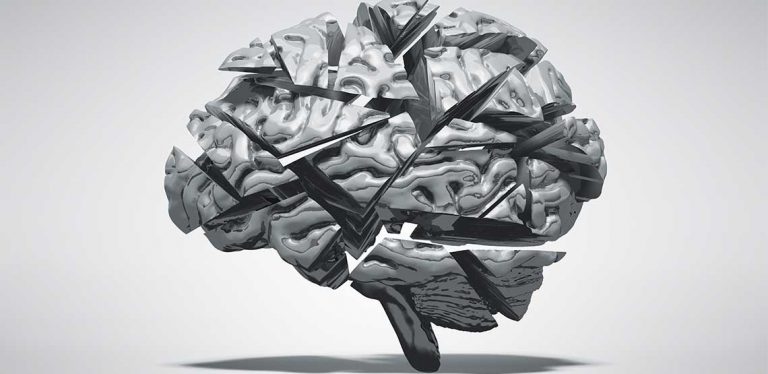Understanding, Coping and Living Fully
Epilepsy is a neurological disorder that causes repeated seizures, abnormal brain activity, and loss of awareness. A seizure is an uncontrolled activity in the nerve cells resulting in abnormal movements like muscle twitching or muscle stiffness. But, what causes epilepsy? Let’s find out!
Signs and Symptoms of Epilepsy
Some of the symptoms of epilepsy are as follows:
- Confusion.
- Blank stare.
- Uncontrolled movements of the arms and legs.
- Fear.
- Anxiety.
Related Search Topics (Ads)
Symptoms vary from person to person, depending on the type of seizure. Seizures can be of two types: generalized or focal.
Generalized Seizures
Generalized seizures involve the whole brain and there are six different types:
- Tonic seizures: Known to cause stiffness of the muscles, which may cause the person to fall.
- Atonic seizures: Result in the loss of muscle control, resulting in the person falling. They are also known as drop seizures.
- Absence seizures: Causes people to stare blankly. This type of seizure is common in children and causes repetitive movements, like blinking and lip-smacking. It’s also known as a petit mal seizure.
- Clonic seizures: Causes repeated and rhythmic movements of muscles of the head, neck, and arms.
- Myoclonic seizures: Causes sudden twitching and jerking of arms and legs.
- Tonic-clonic seizures: Formally known as grand mal seizures. It causes a sudden loss of consciousness, shaking of the body, body stiffening, and loss of bladder control.
Focal Seizures
Abnormal activity in just one part of the brain is known as focal seizures. There are two kinds:
- Simple partial seizures: Don’t cause a loss of emotions. However, they are known to change the way things smell, taste, feel, and sound. They may result in tingling, dizziness, and flashing lights. Simple partial seizures are also involved in involuntary jerking of the body.
- Complex partial seizures: Involves a loss of consciousness. Symptoms include unresponsiveness, a blank stare, and repetitive movements.
Epilepsy Causes
Various things cause epilepsy, but for some people, a cause cannot be determined. Hereditary plays a significant role in some types of epilepsy. The chance of developing epilepsy is doubled if your parent’s epilepsy is linked to genetics. Some of the major causes of epilepsy are:
- A tumor in the brain or cyst.
- Dementia or Alzheimer’s.
- Brain injury.
- Scarring from a brain injury.
- High fever.
- Stroke.
- Lack of oxygen to the brain.
- Prenatal injury.
- Infectious diseases.
- Genetics.
Epilepsy affects people of all ages, gender, race, or ethnicity. Epilepsy can develop at any age, depending on the cause and diagnosis.
Risk Factors for Epilepsy
Some of the risk factors that may increase your risk of epilepsy are as follows:
- Age: Epilepsy is more common in children or older age individuals, but it may occur at any age.
- Injuries to the head: In some cases, a head injury may result in epilepsy. Wear a helmet while doing any activities with a high risk of head injuries.
- Family history: As discussed earlier, genetics play an important role in this disease — your chance of developing epilepsy doubles with family history.
- Dementia: In older adults, dementia may result in epilepsy.
- Stroke: Brain damage resulting from stroke may lead to epilepsy. Limit intake of alcohol, nicotine, and maintain a healthy diet.
- Seizures in childhood: High fever is associated with epilepsy in children, but the risk of epilepsy increases only if a person is experiencing prolonged seizures.
- Brain infections: Brain infections or inflammation of the brain or spinal cord increases the risk of epilepsy.
Diagnosis
If you are developing any symptoms of seizures, then it is highly recommended to visit your doctor. A seizure could be a symptom of a serious medical issue. A doctor will check for signs and symptoms and order tests to locate the root cause of the problem. Some of these tests may be a complete blood count. A blood test may be used to look for any signs of infections or check your blood glucose levels.
One of the most common tests used in diagnosing epilepsy is an electroencephalogram or EEG. It’s a painless test in which electrodes are attached to detect the activity of the brain.
Some other imaging tests used are:
- MRI.
- CT scan.
- Single-photon emission computerized tomography (SPECT) scan.
- Positron emission tomography (PET) scan.
Treatment Options
Treatment of epilepsy is based on the severity of the symptoms you are facing. Treatment may include:
- Antiepileptic drugs: Can reduce or even eliminate the number of seizures, but they should be taken exactly as prescribed by your doctor.
- Vagus nerve stimulator: Electrically stimulates the nerve going through your neck and prevents seizures.
- Switching to a ketogenic diet: It is effective for people who do not respond to medicines.
- Brain surgery: Another option in which the affected area of the brain is removed or altered.
When to Visit a Doctor
If you are epileptic and experience or have any of the following, visit your doctor immediately:
- A seizure lasting for five or more minutes.
- High fever.
- Diabetes.
- Pregnancy.
- A second seizure occurs immediately.
- Injury to yourself during a seizure.
- Breathing that does not return to normal following a seizure.
It’s important to speak with your doctor to understand and learn more about the type of seizure you are having and the possible treatment for that specific seizure.

